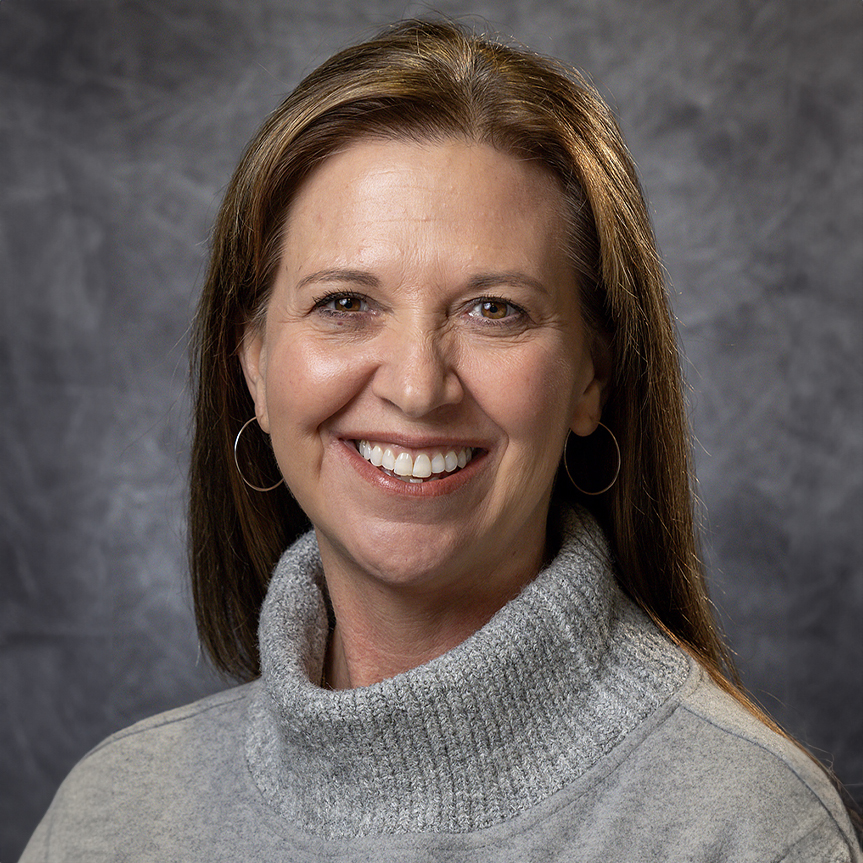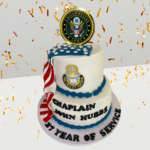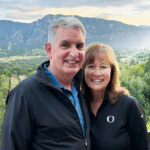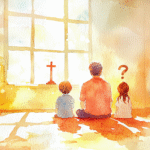By Bishop Kaye Kolde
I have had the blessing of people in my life who have affirmed, encouraged and supported me. My husband and children, mentors, pastors, congregants and friends have said, “I believe in you,” and I don’t take that for granted. I also don’t think they were looking me in the eyes to declare a physical reality, as if they were just stating their certainty that I exist. This kind of statement toward me was a statement of potential and goodness that they trusted could and would be realized in me. That is a special kind of confidence.
This year is the 1,700th anniversary of the Nicene Creed, one of the historic statements of our faith that summarizes our understanding of the 3-in-1 God as a response to the Arian heresy. It affirms what we believe about Father, Son, and Holy Spirit. Yet when I looked again at the creed with the eyes of a leader with responsibility for the church, I was struck by this statement: “We believe in one holy catholic and apostolic church.”
Christians by and large don’t have any trouble making statements of confidence about the Trinity, and affirming their faith in the Father, Son, and Holy Spirit. We stake our lives on believing in Jesus and who the Scriptures say He is. But do we — can we — say the same thing about the church? Can we confidently declare we believe in the church, that we trust in it and that its potential and goodness are being realized?
I am afraid that for many both inside and outside the church, their statement would be limited to acknowledgment of the church’s existence. Yet, even if they can’t deny the church exists, they might blame the problems of history on it. For others, their thoughts about the church are more benign, but there is no confidence in the potential of the church and God’s good intentions for us becoming reality.
_
“I do have faith in the church because it is the dwelling place of God’s Spirit.”
_
Surveys confirm that trust in pastors and all institutions, including the church, are at an all-time low. We live in an era when people, even inside the church, don’t place any kind of confidence in it and certainly do not stake their lives on it as a vehicle for positive transformation of people and their communities. This is borne out in the other things we believe in and serve with more passion than the church — the many things that have become idols.
I really do believe in the church. I am acutely aware of the indictments against the church universal and our own Free Methodist family, and that too many of those are based in the truth of our human failings. This is one of the reasons we are calling the church to practice repentance and cleansing and seek the movement of God’s Spirit among us. Despite all that evidence, I do have faith in the church because it is the dwelling place of God’s Spirit. I don’t worship the church, but I worship the Lord and Creator of the church. His intention is that goodness and potential can be, and will be, realized in and through us. We often hear it said that it was His plan A and there is no plan B, but countless numbers of people have walked away from the church (even if not from a faith in Jesus).
Another essay would be needed to explore the problem with thinking you can love Jesus and not His body or interdependence, but, in this one, I want to remind you of some of the beautiful things that I believe about the church. I don’t just believe these things intellectually, but with the kind of trust and surrendered life that our historic faith requires.
Years ago, I was wrestling against my calling to pastoral ministry because of the wounding and rejection I experienced in the church. At the same time, I was in a season of in-depth inductive study and teaching in the book of Ephesians. As I meditated for several months on Paul’s letter to a church filled with potential, a beautiful vision for what the church must “be and become” took root deep into my soul. It formed what I believe and love about the Lord’s church. I want to share a few of those things.
Paul begins the epistle talking about the spiritual blessings we share as a spiritual family adopted in love. According to God’s plan, we have redemption through His blood and forgiveness of sins in accordance with the riches of God’s grace. In a world beset by sin that brings division and hatred, redeemed people have a different future:
“He made known to us the mystery of his will according to his good pleasure, which he purposed in Christ, to be put into effect when the times reach their fulfillment — to bring unity to all things in heaven and on earth under Christ” (Ephesians 1:9–10).
What do I believe and love about the church?
It is a living embodiment of God bringing true unity, an otherwise impossible reality, through Christ. It is ONE holy and catholic apostolic church.
We face countless doctrinal divides and sociopolitical factions, but Ephesians offers us this transcendent truth. He is bringing unity to all things, beginning with His church. As we pray and work to bring unity in the Free Methodist Church, I can give myself to it fully because this is what God says He is doing.
Paul offers his first beautiful prayer for the church at the end of chapter 1, “asking that the God of our Lord Jesus Christ, the glorious Father, may give you the Spirit of wisdom and revelation, so that you may know him better” (Ephesians 1:17).
This prayer for revelation and power concludes with Paul helping us know Jesus, the Lord of the church, as the one who is “far above all rule and authority, power and dominion, and every name that is invoked, not only in the present age but also in the one to come. And God placed all things under his feet and appointed him to be head over everything for the church, which is his body, the fullness of him who fills everything in every way” (Ephesians 1:21—23).
He has all authority and power to vanquish the enemy, who seeks to destroy the church and the witness of His glory. Do you see the beautiful intention of God for the church, and believe that only together in the church will we experience all the fullness of God?
As Paul wrote in chapter 2, we see that by grace we are offered reconciliation with God, and we are offered reconciliation with one another — whether Jew or Gentile, whether near or far off from Him. This is so that enemies of God could become children of God. When we live this life in Christ, it brings unity between God and humans, and it also brings unity between groups of people in the church.
_
“One of the things that I believe and love about the church is that we are meant to be collectively guided by the Spirit and powered by God’s grace for the sake of others!“
_
A Multiethnic Family
The church was a new multiethnic family supernaturally born of the Spirit, the giver of life. This was the promise fulfilled at Pentecost, and we are still supernaturally empowered to be so today. It is not a man-made invention. It was conceived in heaven and includes every child adopted by God and filled with His Spirit across location and time throughout the whole. This is the little “c” catholic church.
According to Dallas Willard, “the aim of God in history is the creation of an all-inclusive community of loving persons, with Himself included in that community as its prime sustainer and most glorious inhabitant.”
Another one of the things that I believe and love about the church is that this new multiethnic, inclusive family was not only impossible for man alone to achieve, but it is an imperative for Jesus and His body. This is the truth that has been handed down to us.
Holiness and Wholeness
It is tempting, especially as those who highly value holiness, to defend the church through legalism and works. Yet, in chapter 3, Paul writes about the ministry he’s been given. He repeats three times that this was a gift of God’s grace to be part of the reconciling work of God and to steward, or administrate, the grace of God for the sake of others. Grace doesn’t just save us; it sustains us and matures us collectively to be an embodiment of sacrificial, self-giving love. One of the things that I believe and love about the church is that we are meant to be collectively guided by the Spirit and powered by God’s grace for the sake of others!
Often I need to remind myself that the high emphasis on individualism, which I have been raised and even discipled with, is at odds with the Scriptures and the notion of being God’s people, the church. There is a y’all version of the New Testament you can find online, and it translates every plural instance of the word “you” to read “y’all,” and it helps remind me of that truth.
“I pray that out of his glorious riches he may strengthen y’all with power through his Spirit in your inner being, so that Christ may dwell in y’alls hearts through faith. And I pray that y’all, being rooted and established in love, y’all may have power, together with all the Lord’s holy people, to grasp how wide and long and high and deep is the love of Christ, and to know this love that surpasses knowledge — that y’all may be filled to the measure of all the fullness of God” (Ephesians 3:16–19).
This prayer focuses on power and love, two of the by-products of Christ living in us, and again he repeats the idea of “all the fullness of God.” How often we forget that this is a glorious and astonishing promise: filled to the measure of the fullness of God, but I will only experience as much as I am part of y’all. In Colossians 2, Paul teaches that in Christ is all the fullness of God, all the deity in bodily form. But here he is saying the church can be filled with all the fullness of God. This is mind-boggling if you really reflect on it! Do you believe it?
This should make our hearts beat as an unbelievable offer of goodness and potential to be realized only within the church, as Paul explains to the Ephesian church, “So Christ himself gave the apostles, the prophets, the evangelists, the pastors and teachers, to equip his people for works of service, so that the body of Christ may be built up until we all reach unity in the faith and in the knowledge of the Son of God and become mature, attaining to the whole measure of the fullness of Christ” (Ephesians 4:11-13).
_
“The church is to be evidence that God is bringing unity to all things in heaven and on earth…“
_
The whole measure of the fullness of God is the divine nature, and from our theological understanding this wholeness is holiness, the perfect, powerful love of God. One of the things that I believe and love about the church is that we only become “holy as he is holy,” together! His design is that we can only receive all the fullness together. This is the nature of His body, the church. “From him the whole body, joined and held together by every supporting ligament, grows and builds itself up in love, as each part does its work” (Ephesians 4:16).
Beliefs like this are more than intellectual assent, and they are not theoretical or distant or abstract. It is a way of life according to Paul, and the rest of God’s Word. The church is to be evidence that God is bringing unity to all things in heaven and on earth, by creating one growing, inclusive, multiethnic family where God’s Spirit guides and empowers us by grace to receive all the fullness of God and become holy as he is holy together. Do I believe in the church this way? Yes, I do, even on the days when I weep over what we have not yet become. I will spend my life to see it be so because that is what glorifies God.
Like Paul then, I urge you to live a life worthy of the calling you have received. “Be completely humble and gentle; be patient, bearing with one another in love. Make every effort to keep the unity of the Spirit through the bond of peace” (Ephesians 4:2-3) as you “walk in the way of love, just as Christ loved us and gave himself up for us as a fragrant offering and sacrifice to God” (5:2) and “take your stand against the devil’s schemes” (6:11) to thwart all the goodness and potential of Christ’s church. I believe in you, beloved church.
+

Bishop Kaye Kolde was elected to the Free Methodist Church USA Board of Bishops in 2023 after serving since 2019 as the lead pastor of The Arbor Church in Spring Arbor, Michigan. She has enjoyed coaching for discipleship systems and previously served as the executive pastor of ministry and in other pastoral roles at Sage Hills Church in Wenatchee, Washington. She is married to Dr. David Kolde, and they are the parents of a son, Gray, and a daughter, Emi.











